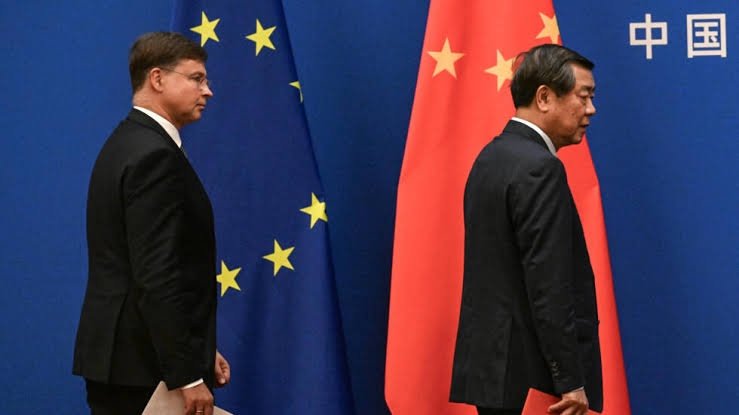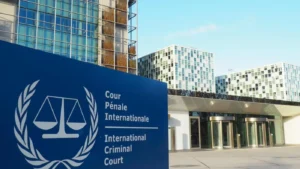EU unveils measures to safeguard sensitive tech from Chinese acquisitions

The European Union (EU) has planned to reveal its strategy to counter China’s aggressive trade policies, primarily by identifying a list of critical technologies that must remain beyond Beijing’s reach.
The EU, under the guidance of Brussels, is constructing a robust trade defense mechanism aimed at safeguarding the bloc’s interests from rival nations. This includes the development of tools designed to penalize nations attempting to exert pressure on EU member states.
The European Commission will soon release a comprehensive list of critical technologies that it deems crucial to European security, interests, and human rights.
These technologies are to be kept out of the hands of countries that could potentially threaten the EU’s well-being. Concurrently, the European Parliament is poised to grant approval to a mechanism that would empower the EU to impose tariffs, restrict investments, and limit access to public contracts for nations engaging in economic coercion.
This proactive stance is a direct response to a trade dispute between the EU and China, triggered by trade restrictions imposed on EU member Lithuania due to its strengthened ties with Taiwan. During upcoming parliamentary sessions, Members of the European Parliament (MEPs) will interrogate the commission regarding the EU’s evolving relationship with China, particularly following Trade Commissioner Valdis Dombrovskis’ recent visit to China.
Despite the EU’s intention to maintain dialogue with Beijing, Brussels has intensified efforts to control critical trade dealings with China. This aligns with a strategy referred to as “de-risking” rather than complete “decoupling” from China, an approach championed by European Commission President Ursula von der Leyen.
She underscores the importance of increasing domestic production within Europe and collaborating with like-minded nations to ensure “economic security,” a concept that gained prominence following Russia’s invasion of Ukraine last year.
In the quest for economic resilience, the EU is prioritizing the protection of key technologies, potentially encompassing quantum computing, advanced semiconductors, and artificial intelligence. Von der Leyen previously emphasized a focus on a “limited, small set of cutting-edge technologies” to prevent their misuse in enhancing the military capabilities of certain nations of concern.
EU officials have expressed concerns over the absence of a robust framework for evaluating technology exports that may jeopardize the EU’s interests. While China is not explicitly named, the objective of these stringent measures is unmistakable.
Furthermore, the European Commission is actively developing proposals to regulate outbound investments, which could impose restrictions on funding by European companies abroad.
Additionally, preparations are underway for legislation to reduce the EU’s dependence on China for critical raw materials, crucial for products such as electric cars. Notably, China has already taken steps to restrict access to vital rare metals like gallium and germanium, essential components in semiconductor production.
In a recent escalation of tensions, Brussels initiated an investigation into Chinese electric car subsidies, alleging unfair competition in the EU market. The potential consequences of this probe, including the imposition of tariffs on Chinese electric cars above the standard 10 percent EU rate, have raised concerns about a potential trade war with Beijing.
The EU’s actions in this regard underscore its commitment to safeguarding its economic interests and technological sovereignty.








